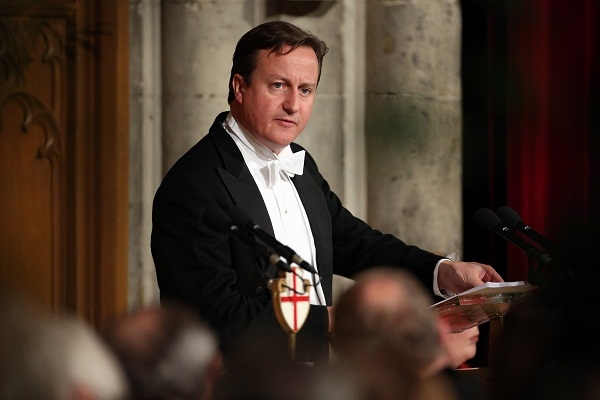David Cameron (and a host of other politicians, including Ed Miliband, Vince Cable and Boris Johnson) will address the CBI’s annual conference this morning. Cameron’s widely trailed speech is a call to arms; indeed, he wants to put the public sector on a war-footing. The speech will contain the usual spiel about Britain being in a ‘global race to succeed’ and the need for innovation and cutting red tape, faster decision making etc, etc, etc.
You’ll know, of course, that these urgent words come from the man who feels that the decision on a third Heathrow runway cannot be made until after the next election. This fact mocks Cameron’s claim that ‘the Cabinet I chair is now a Growth Cabinet…I go around that table and hold people to account for progress on everything from superfast broadband to house-building, in a way that has never happened before’.
There is often a clear difference between what Cameron says and what Cameron does. And, for all his talk of ‘risk averse’ Whitehall and ‘bureaucratic rubbish’, the problem is political as much as it is administrative. The speech to the CBI will be tested against the Chancellor’s forthcoming autumn statement. Will Osborne add yet more regulations to the statute book? Will he complicate the tax code still further? Will the “tough decisions” lead to yet more Brown-style debt? We await the new political dawn with baited breath.
There is one area, though, where Cameron is determined to take action. As the Downing Street press release puts it, the Prime Minister will ‘announce plans to reform the Judicial Review process reducing the time limit when people can bring cases; charging more for successive reviews – so people think twice about time-wasting; and halving the number of appeals.’
This is not the first time that Cameron has picked a fight over planning law: it infuriates Tory backwoodsmen and makes for a good headline on page 6 of the Independent. Yet it is a philosophically troubling development for old fashioned Tories who believe that we are free by the law rather than from it. The no-nonsense jargon of the Downing Street press release partially disguises the fact that the executive plans to limit residents’ ability to challenge planning decisions; or, in other words, the executive will curb the private citizen’s access to the judicial system in the hope that economic growth might be stimulated. It also highlights a contradiction at the heart of this government: it preaches localism one week and centralism the next.






Comments